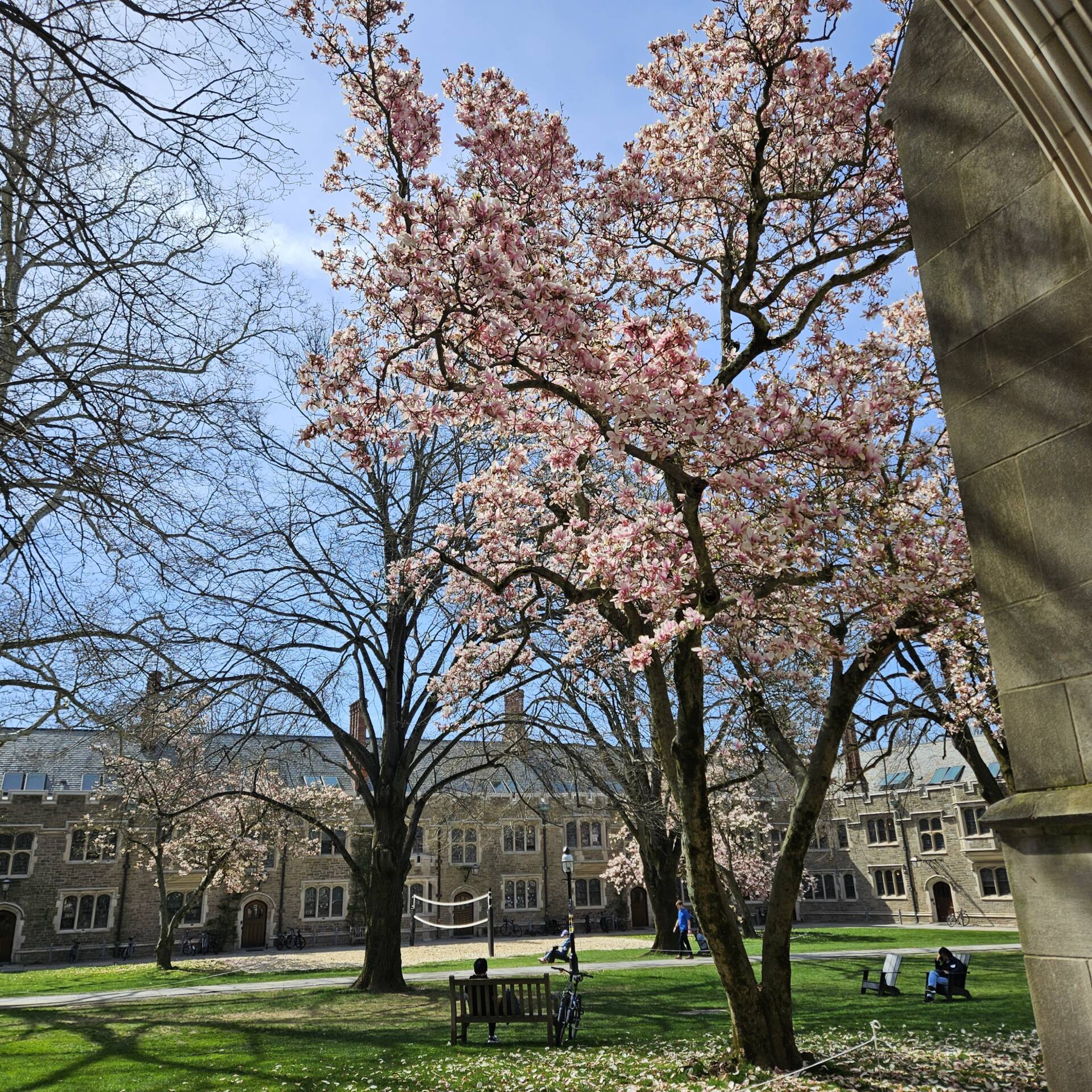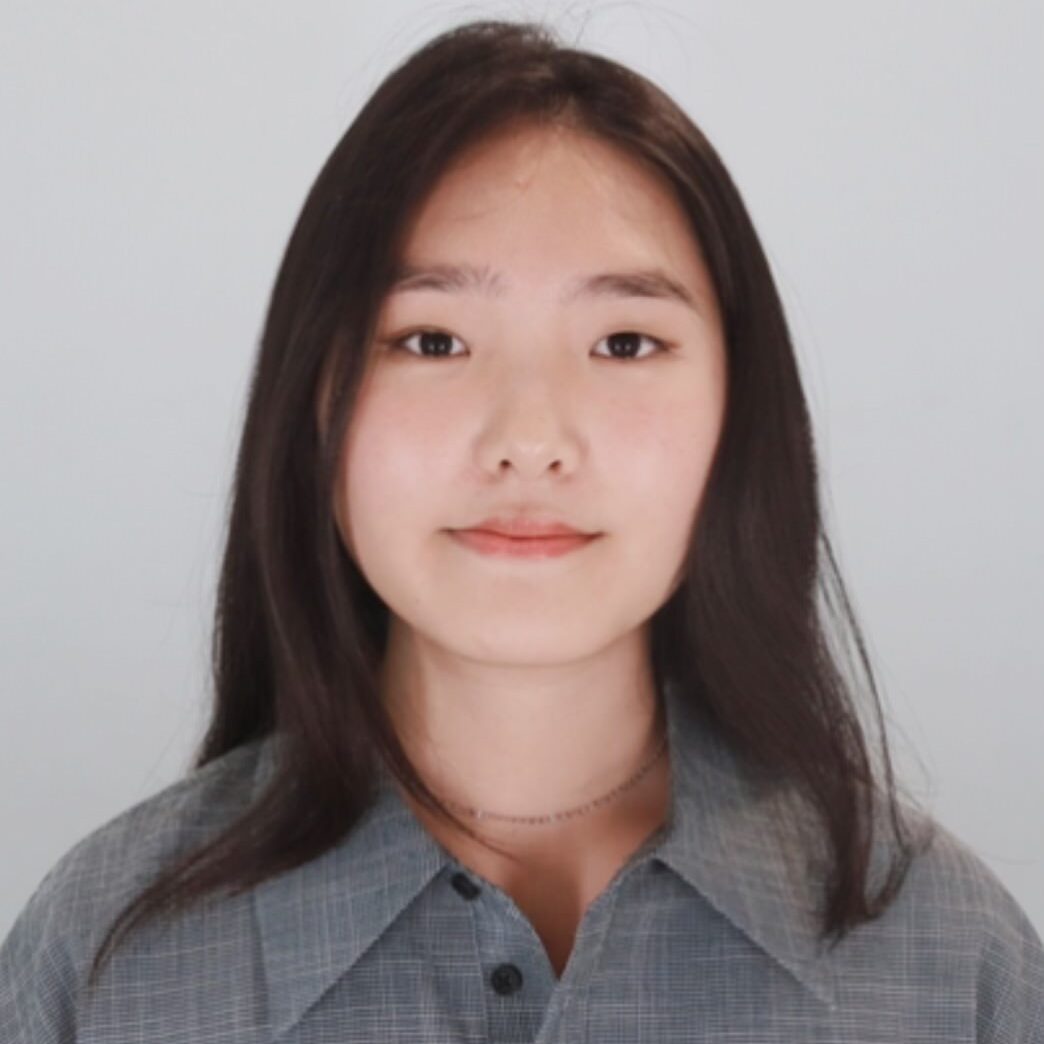Robert P. George is McCormick Professor of Jurisprudence and the founder and director of the James Madison Program in American Ideals and Institutions. His courses, Civil Liberties and Constitutional Interpretation, have long been famed, loved, and sometimes feared by students for their intellectual rigor and exact grading. Over the course of his 40 years of teaching at Princeton, he has mentored and inspired scores of students. For our seasonal series on mentorship, I asked Professor George about his experience both as a mentor and a mentee.
Continue reading “The Luckiest Man in the World”: An Interview with Professor Robert P. GeorgeNow & Next: Illuminating Solar Innovations with Barry Rand
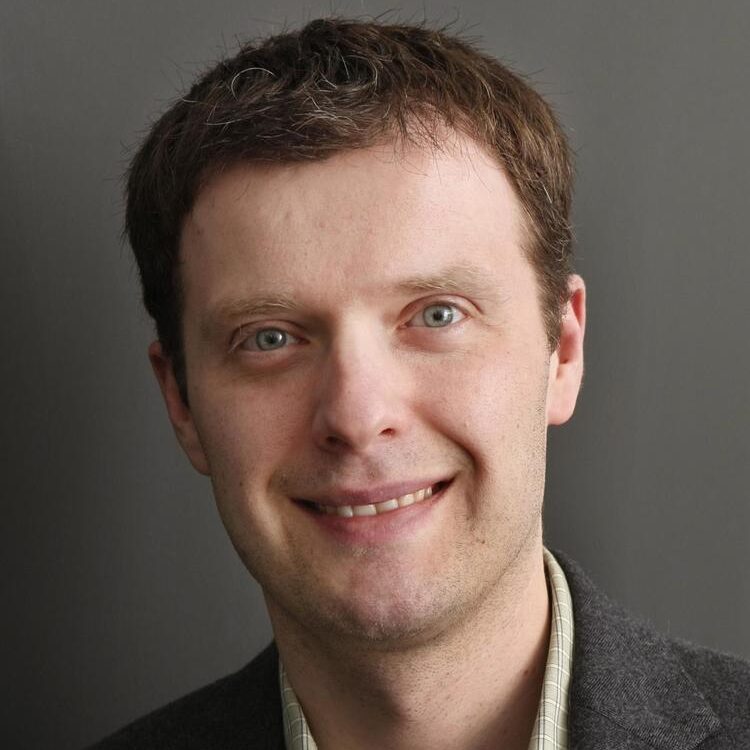
As a student in his ENE 431: Solar Energy Conversion course, I’ve had the privilege of learning from Professor Rand this semester. This course has challenged how I think about energy and prompted me to look more closely at the systems that power the world. What stood out to me wasn’t just the technology, but the sense of possibility it held. I found myself thinking more seriously about what the future of energy could look like, and who’s shaping it. That curiosity led me to interview Professor Rand for Now & Next, where we discuss his research in thin-film electronics and where he sees the field heading.
Continue reading Now & Next: Illuminating Solar Innovations with Barry RandClasswork Meets Research Work: A Unique Field-Based Experience in Death Valley
Many of us might think of classwork and research as two separate entities. Here at Princeton, we might think, we take classes to learn and to prepare ourselves for independent work, but the two are distinct concepts. But reality is, of course, much more complex: classes at Princeton can and do incorporate elements of independent research work. This spring break, I had the opportunity to conduct field research as part of one of my classes, GEO 372 (Rocks!). We flew down to Death Valley National Park for a week, collecting various rock samples and learning about the regional geology. For the rest of the semester, we’ll be analyzing the samples to answer our given research question.
Continue reading Classwork Meets Research Work: A Unique Field-Based Experience in Death ValleyHeads Up: You Might Need Study Approval from the Institutional Review Board
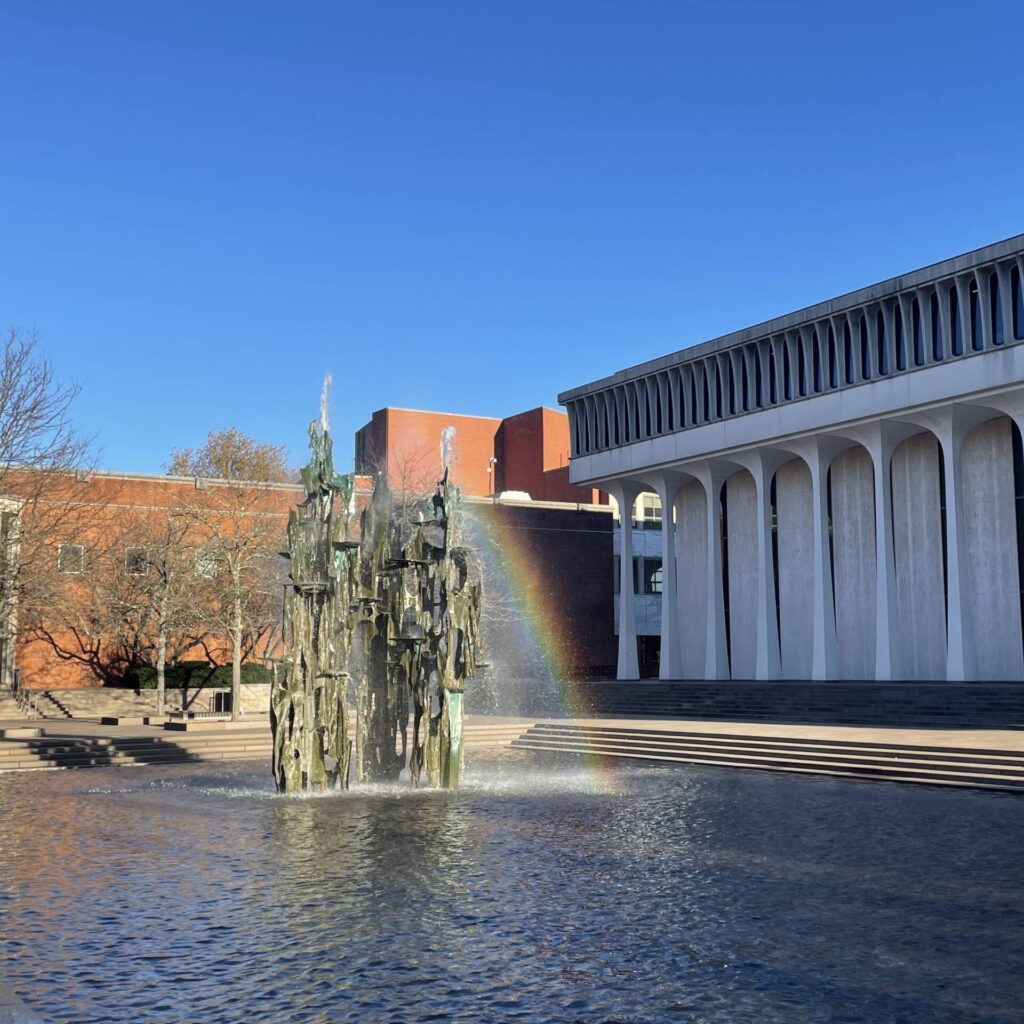
Independent research at Princeton offers an incredible opportunity for students to explore their academic interests and gain experience in the research world. This year, I’m working on my Senior Thesis with Professor Aleksandra Korolova, conducting an audit of Google ad delivery optimization algorithms. Specifically, I am studying whether aspects of advertisements—the image, text, links, and so on—impact the demographics of the audience to whom the advertisement is delivered.
In the fall, many people were curious about how my thesis was progressing. The truth was, for a few weeks, I hadn’t started running any experiments, since I first needed my research to be approved by the Institutional Review Board (IRB). Through this experience, I both gained insight into the IRB process and found that many students had never even heard of the IRB. In this article, I share my experience and offer advice for students who are planning to conduct independent research.
Continue reading Heads Up: You Might Need Study Approval from the Institutional Review BoardOffice hours are weird. Here’s how to make the most of them.

If you’re like me, you’ve been here. Standing awkwardly outside your professor’s door, notes in hand, heart racing slightly as you rehearse your question for the tenth time. When I first got to Princeton, my professors felt larger than life – giants in their field, accomplished researchers and authors. As an undergraduate, I felt like an ant in comparison. I felt afraid to go to their office hours, because their time felt so much more valuable than mine.
Continue reading Office hours are weird. Here’s how to make the most of them.Research is Better with the Right Mentor—How I Found Mine

When I first came to Princeton, already interested in neuroscience research, I kept hearing about all the incredible opportunities available to undergraduates. Professors conducting groundbreaking neuroscience studies, cutting-edge labs filled with brilliant minds—it all sounded amazing. But as a first-year student, I had no idea how to actually get involved. Everyone seemed to know what they were doing, while I was stuck wondering: Where do I even start? Will a professor really take time to mentor someone like me? If I cold-email them, will they even read it?
Continue reading Research is Better with the Right Mentor—How I Found MineStaying Connected
Each spring semester, it feels like many of us find ourselves scrambling to find unique, competitive, and exciting research experiences. In these intense weeks full of interviews, rejections, and offers, it is also important to think ahead about what comes next. Although staying connected with your research team after a program or internship ends can present a unique set of challenges, it can just as easily open up a number of new opportunities. This was a dynamic I had to adjust to at the end of my research internship last summer. Through that personal experience, I have found that consistent and clear communication are key after any research experience.
Continue reading Staying ConnectedNow & Next: Microsoft’s Quantum Computing Breakthrough—Revolution or Overstatement?
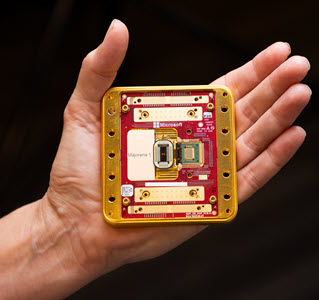
In light of recent discussions in the scientific and engineering community, I wanted to take a closer look at Microsoft’s latest announcement in quantum computing. As someone deeply interested in the intersection of research and innovation, I was curious about what this means for the field. Is this truly a turning point in quantum computing, or is there still more work to be done? As part of Now & Next, a new series dedicated to exploring current events, groundbreaking research, and forward-looking trends in engineering, this post delves into Microsoft’s research, the promise of topological qubits, and how the research community is responding. This could be the dawning age for quantum computing, or another step in a long journey. Let’s dive into what’s going on now and what’s coming next with Microsoft’s quantum computing announcement.
Continue reading Now & Next: Microsoft’s Quantum Computing Breakthrough—Revolution or Overstatement?The Art of Cartography: Creating Maps for your Research
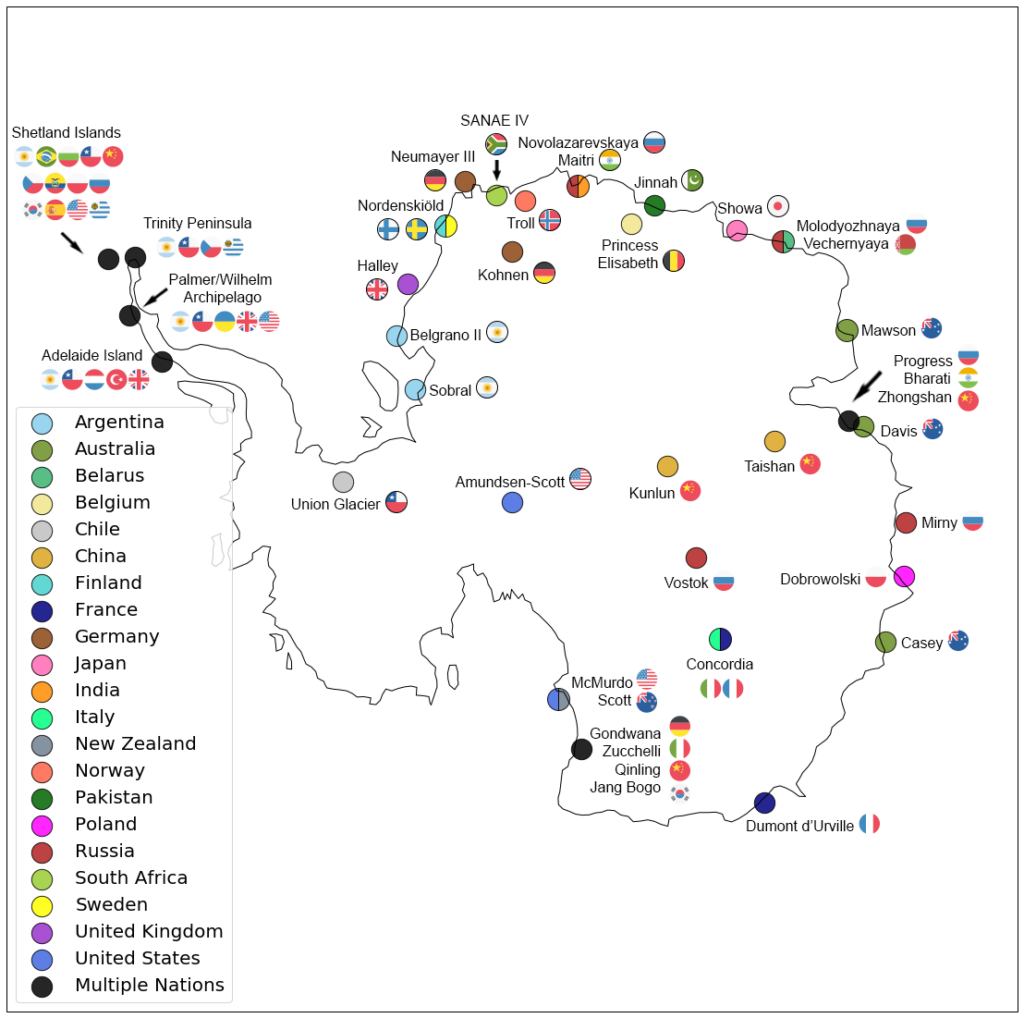
Ever since I was a child, I’ve always loved maps—I was a major geography nerd growing up. Jumping forward to today, my like-minded roommates are just as obsessed as I am: the walls of our dorm are literally covered floor to ceiling with maps. These include (but are not limited to) a glaciological map of Antarctica, public transport maps of numerous cities (Toulouse, Christchurch, and New York are just some examples), and a road map of my home state of Washington!
Maps aren’t just a fun hobby: They’re also enormously important in numerous research fields (in addition, of course, to just being plain useful). Whether your research field of interest is history or meteorology or epidemiology, there’s a good chance that you’ll be reading—and making!—some maps. In my own field of glaciology, maps are of paramount importance, whether it’s a map of glacier melt contribution from southeast Alaska or a map of Antarctic ice core sites. I’ve written this guide to provide some helpful resources and tools for making maps for your research, so hopefully it will serve as a good starting point! I should note that this isn’t a tutorial, but plenty of great tutorials should exist on the Internet for all of these tools.
Continue reading The Art of Cartography: Creating Maps for your ResearchInsights and Interests: An Interview with Cevina Hwang
Hailing from Saipan and South Korea, Cevina Hwang is a junior in the Ecology & Evolutionary Biology department. With a longstanding interest in the field of dentistry, she chose to expand upon this passion through her junior work, where she will be exploring the evolution of the human jaw and teeth.
Join me below to read about Cevina’s journey in the junior work process.
Continue reading Insights and Interests: An Interview with Cevina Hwang


